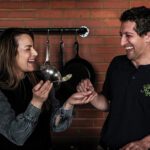Wisdom from the Southern kitchen
December 2, 2019
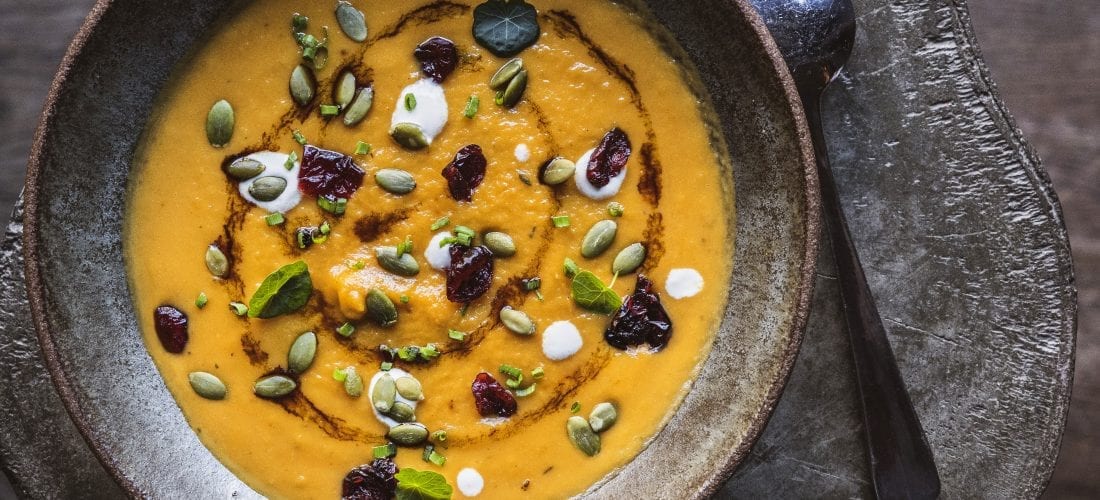
On bacon grease and honoring tradition: For these Charlotte chefs, some skills are grandfathered in.
by Ben Jarrell • Photographs by Michael Hrizuk
Two cans of bacon grease sat on the kitchen counter of Louise Prewitt’s home off Third Street near downtown Memphis. Mrs. Prewitt — not one to throw away anything that might be useful, according to her grandson — would use one can for a general cooking fat, the other for frying chicken.
Her grandson, James Beard Award nominee Greg Collier, paid attention to his grandmother, who he called “Granny.” Collier and his wife, Subrina, own The Uptown Yolk restaurant at 7th Street Public Market and are among the co-founders of Soul Food Sessions, a group of African American chefs who recently returned from cooking at the James Beard House in New York.
When Collier’s mother spent time at the couple’s house in 2014, she did the same thing with her bacon grease. When her son asked why, the answer was clear:
“Because we’ve always done it.”
Some of the South’s best chefs have stories of tugging at grandma’s apron strings, standing on a milkcrate while she canned the summer harvest. For many acclaimed Southern cooks such as Sean Brock, Mashama Bailey and Vivian Howard, it was almost a rite of passage to help shell peas or punch biscuits from an early age.
Three Queen City chefs share similar memories reflecting the varied backgrounds of Charlotte residents. For these local chefs, special lessons learned from a grandparent helped define the type of cook they’d become. Wielding family tradition, they are sewing the skills and wisdom of their forebears, allowing us — as Charlotte diners — to reap the benefits.
The last spoonful
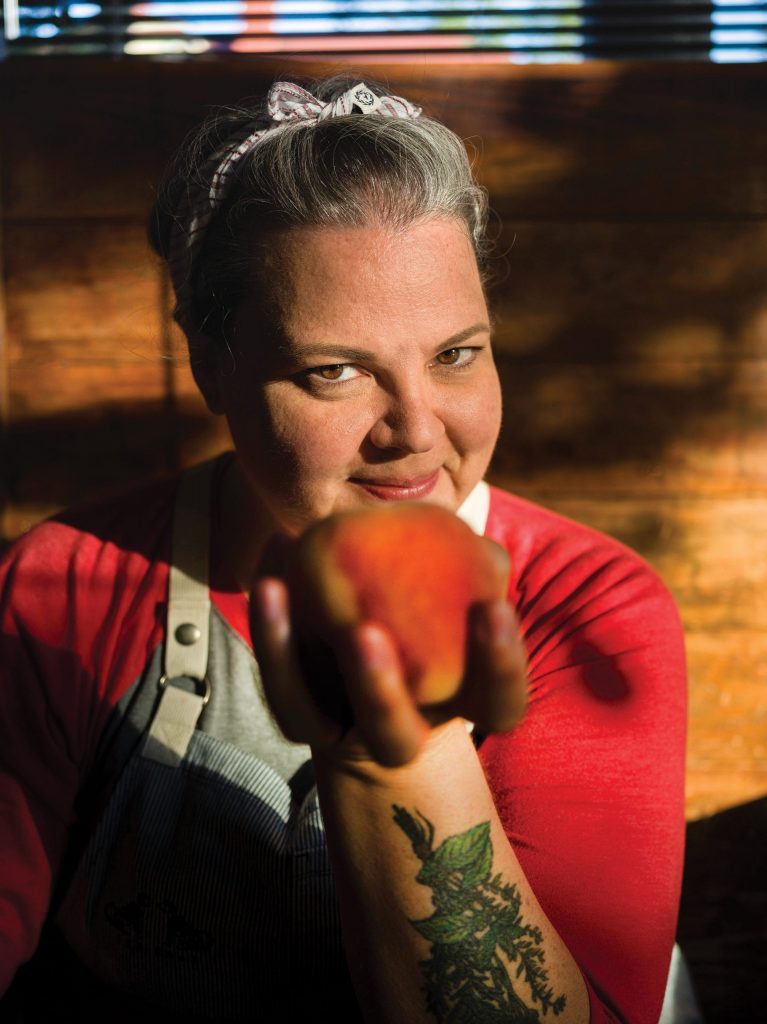
Don’t let her modesty and goofy 7 a.m. dance parties on social media fool you — 300 East’s Laney Jahkel-Parrish is a force in the pastry department. In February, chef-owner Ashley Bivens Boyd moved over to handle the savory side of the menu at the Dilworth spot that’s been a neighborhood favorite for more than 30 years.
Along with her succession to pastry chef came Jahkel-Parrish’s unique style.
The chef’s idea of tres leches cake differs starkly from the version Boyd made famous after it was featured in Food & Wine in 2017. Jahkel-Parrish’s interpretation was inspired by her grandfather’s favorite drink, a Cuban espresso with a heavy dose of canned, sweetened condensed milk called a cortadito.
She remembers her grandfather, who grew up in Havana before eventually becoming a chef in Miami, holding his tiny cup and spoon as he “shuffled around” the house in his slippers.
“He always wore the checkered chef pants just about to the day he died,” Jahkel-Parrish, 41, remembers. “That, and a white, gauzy Cubavera-style shirt.”
After he retired, he enjoyed sitting down with his young granddaughter to show off his life’s work.
“He would love to go through photo albums,” she remembers.
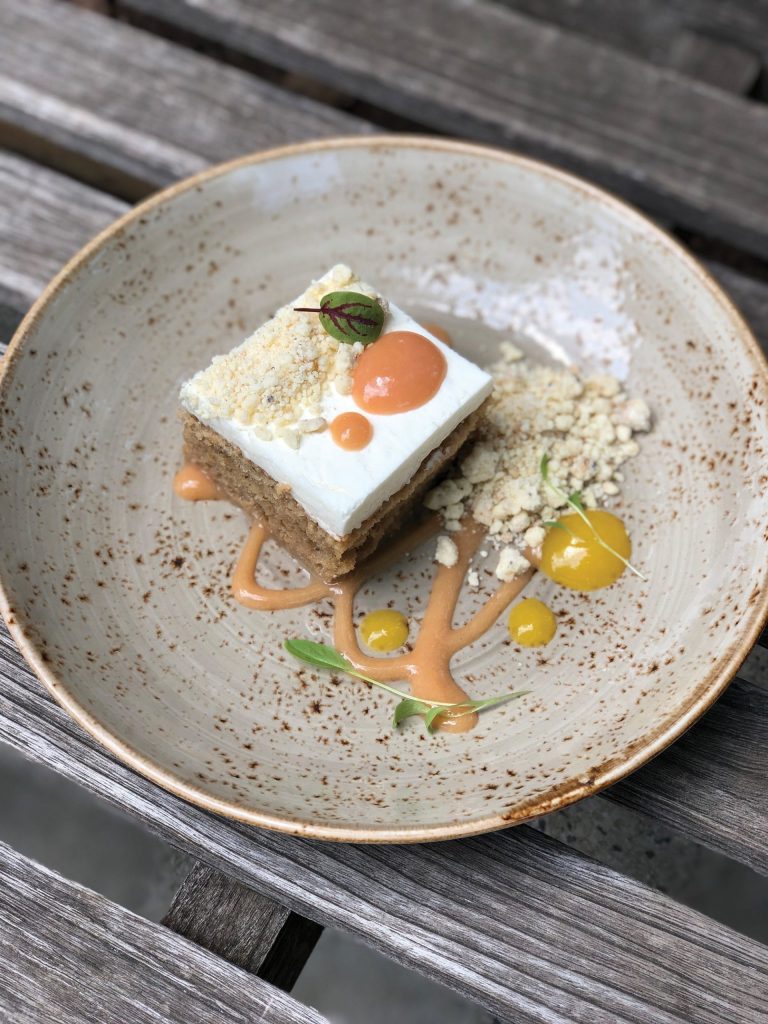
“Cocktail time,” is how Jahkel-Parrish describes the decadence of the Miami hotel scene in the 1940s. Her grandfather’s specialty was colorful, highly-arranged salads and intricate garnishes.
“He loved making those highly sculptural swans out of radishes — all those fun garnishes. Everything was over-the-top on the buffets and displays at the hotels.” Even at home, simple BLTs were garnished with an olive, tomato flower or a carrot curl, says Jahkel-Parrish, who started working at 300 East in 2016 as an intern while studying at Johnson & Wales University.
But when “Pop” had the opportunity to build his own spot, he wanted to serve simple, approachable food like burgers and french fries for the people in his neighborhood.
It’s that same approachability, combined with the methodical flair of her ever-garnishing grandfather, that informs Jahkel-Parrish’s pastry repertoire. Her plates interpret flavors of kids’ cereals, s’mores, ants on a log and Coca-Cola floats — all displayed with elegant precision.
Jahkel-Parrish reflects on her grandfather’s cortadito as she prepares an espresso syrup with house-made sweetened condensed milk, painstakingly made from scratch using full-fat milk from Charlotte-based Uno Alla Volta dairy. The cake is soaked in the syrup to create the effect of a tres leches. Jahkel-Parrish knew she had nailed the recipe when a longtime Latina dishwasher asked her to bake an entire cake for her family.
Inevitably, the last spoonful of her grandfather’s cortadito always had some of the thick, syrupy sweetened condensed milk, left undissolved — which, when mixed with the last of the dark Cuban espresso, presented an entirely new treat altogether.
Jahkel-Parrish’s goal is turning each bite of her tres leches cake into that last spoonful of cortadito.
“He would take that little demi-tasse spoon and turn it up, scrape it in his mouth,” Jahkel-Parrish remembers.
“And wink at me.”
The no-waste kitchen
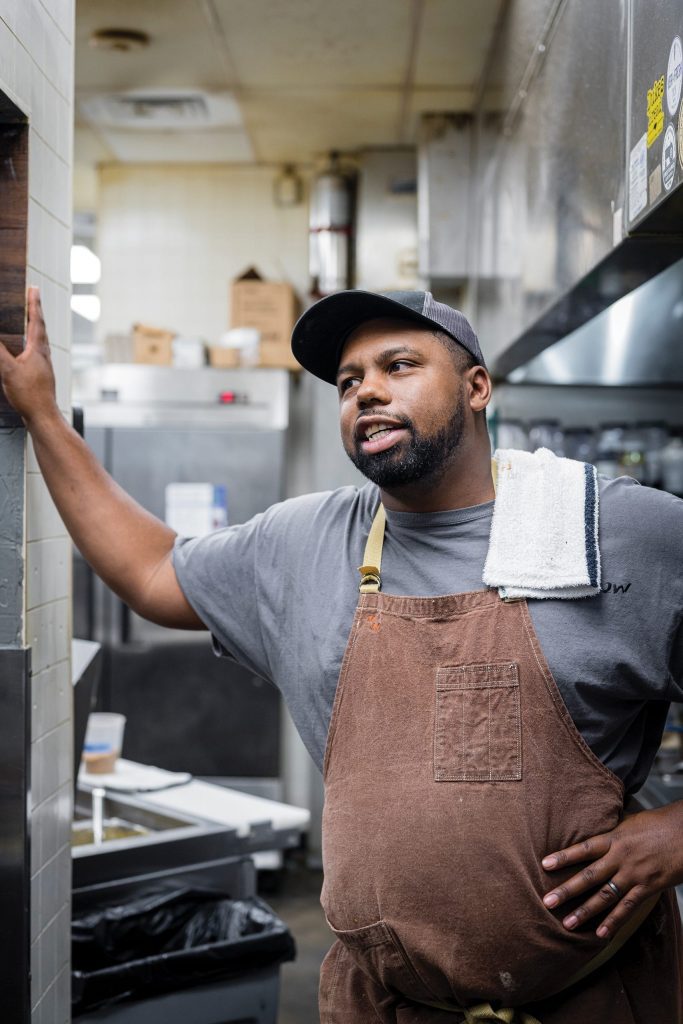
His plates appear as satellites across the world of the African diaspora — scattered, but focused and intentional. At the moment, Greg Collier is in experimental mode. His Uptown Yolk restaurant is coasting smoothly as it approaches the one-year mark. But it also serves as a testing ground for menu items for future projects, including Leah & Louise, the Colliers’ new spot (described as a “modern juke joint”) slated to open in Camp North End in early 2020.
One element Collier, 38, takes away from his grandmother is the necessity cooking of the Southern black cook. Though he admits he didn’t appreciate it when he was young, as a business owner with a payroll and a waste log, he can now see the frugality and resourcefulness in those cans of bacon grease.
A recent large order of bitter greens yielded too many left-over stems to ignore. Typically trashed or composted, in the no-waste kitchen of Louise Prewitt’s grandson, Collier instead turned the excess into “stem chowchow.” The chowchow landed in Collier’s mise en place — a chef’s arrangement of basic ingredients for cooking — and has become one of his favorite flavor bases. Funky and acidic, the relish mixes with everything from apples to bacon and serves as a foil to smoky meats such as pork shoulder and rich bean dishes like cassoulet.
“We already know what to do with the greens,” Collier tells me. “Now we want to know what else we can do with them.”
The chef ordered another case of greens solely for the purpose of R&D, to recreate the conditions of the no-waste kitchen of his grandmother.
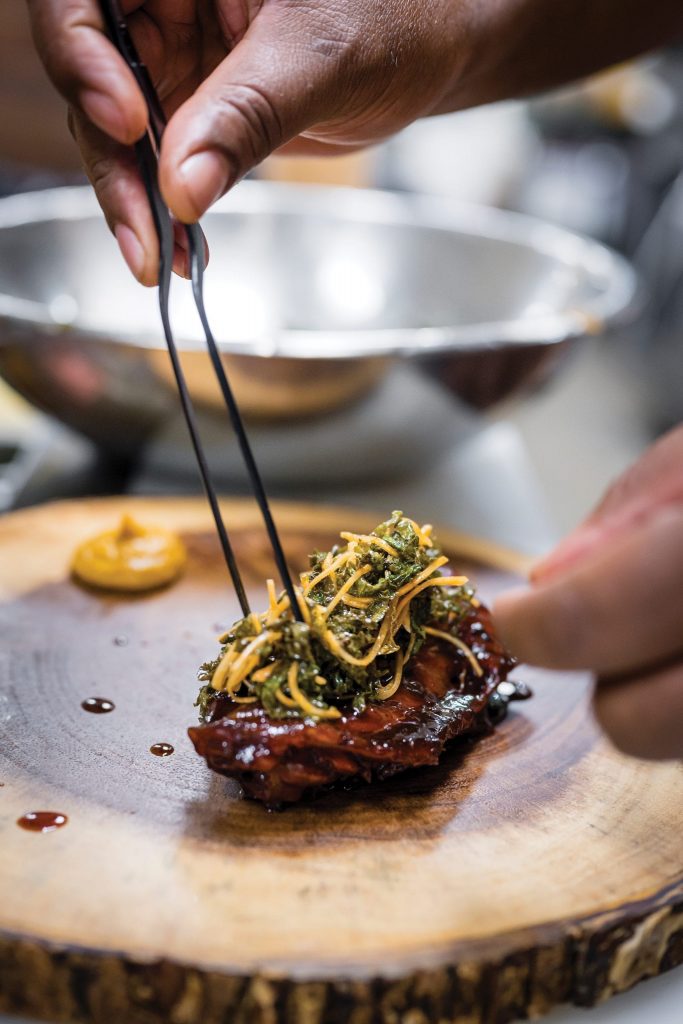
The dried leaves he shows me would keep indefinitely if proper conditions are maintained. To comply with public health regulations, the product can be dried, then frozen. To help populate the menu at his upcoming restaurant, Collier is working on a slaw using reconstituted dried collards to serve alongside a confit smoked turkey wing, sweet potato pickles, sorghum hot sauce and sweet peach mustard.
A dinner hosted several years ago by food historian Michael Twitty at The Asbury was the catalyst that eventually led to Collier’s idea for the dried collards. But the refusal to throw those stems away — and the drying of collard leaves for preservation — echoes the no-waste cooking of his grandmother’s Memphis kitchen. In this way, many of Collier’s dishes are continuing journeys rather than fixed destinations; each one a tangible memory of his life experiences, an ever-evolving summation of influences, new and old.
Louise passed away about 10 years ago. But Collier will pay respect to her no-waste kitchen with his new restaurant, which is named after his “Granny” and his late sister, Leah. Collier aims to intersect the opening of Leah & Louise with the Martin Luther King Jr. holiday weekend, writing with a pensive hand another chapter in the Charlotte food scene.
Rising with the biscuits
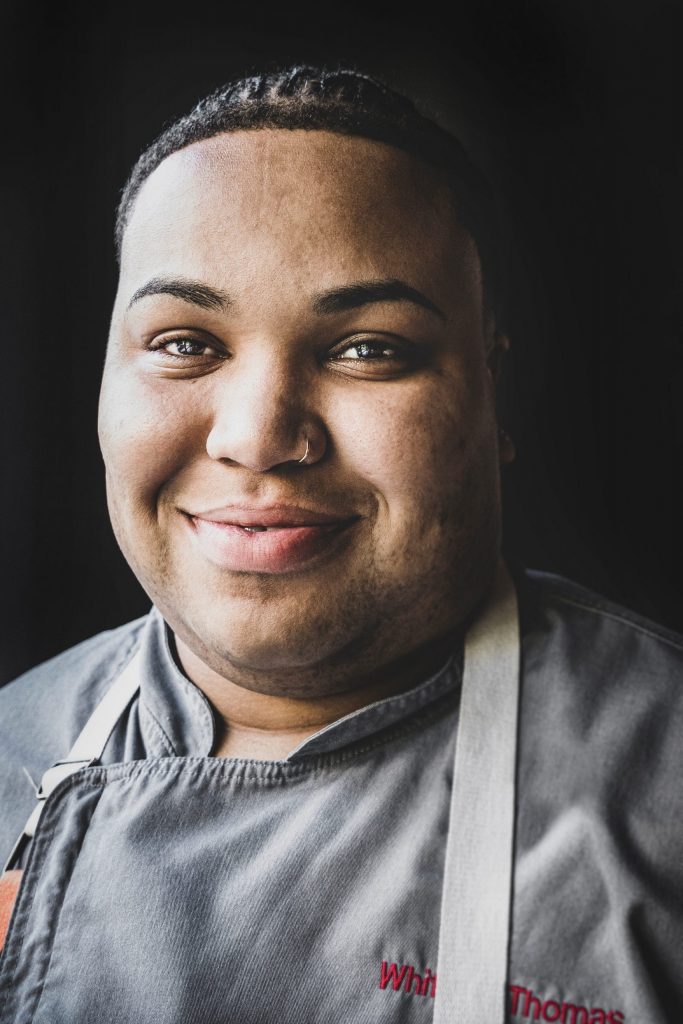
“Y’all know you gotta get up? It’s time to go to church,” Ma would call to her sleepy grandchildren on days when they were slow to stir. It was true, they did have to go to Sunday church, but first, they had to prepare for Sunday supper. Or, more accurately, they had to prepare Sunday supper.
Memories of the Southern kitchen began early for 31-year-old chef Whitney Thomas. Typically, though, rising along with the buttermilk biscuits in Ma’s house in Reidsville, about two hours northeast of Charlotte, wasn’t too demanding.
“There weren’t too many mornings I didn’t want to wake up and be around her,” Thomas remembers fondly.
From as young as age 3, Thomas, who recently became executive chef at Bob Peters’ cocktail lounge The Queen & Glass, remembers helping in the kitchen at the heels of her grandmother. Her grandfather was a farmer, and his garden provided much of the corn, squash and peas used for Sunday supper. But the cooking was up to “Ma” — or Madea, which in many black families is short for “Mother Dear,” explains Thomas, who will compete on an upcoming episode of the Food Network’s Beat Bobby Flay.
Prepping for the Sunday meal was a family effort. They’d start the night before. But much of the cooking — from making cornbread to frying chicken — was done in the early morning hours before church.
Most mornings, Thomas and the other grandchildren needed no further prompting than the sweet smells of bacon, butter and biscuits in the air — the promises of a breakfast, waiting. But on Sundays at 6 a.m., Thomas would wake to the sound of her grandmother’s gospel music playing in the other room.
An army of kids from Ma’s eight children teamed up to shuck corn, stir greens and shell peas. The after-church meal consisted of fried chicken, ribs, collard greens, potato casserole, buttermilk pie and her grandmother’s specialty — a sweet potato pie that, years later, would inspire one of Thomas’ favorite dishes.
“At 8 o’clock, we’d start frying chicken. We’d have to be in Sunday School by 10, so the meal would be completely done before we left. Then after church, we’d sit down and everybody would eat,” Thomas recalls.
“People would come from church just to get some of her food — her sweet potato pie. Nobody could make a pie like Ma.”
I asked Thomas if she ever attempted her grandmother’s recipe.
“I don’t mess with it at all.”
Instead, she takes some of the familiar flavors and creates something all her own.
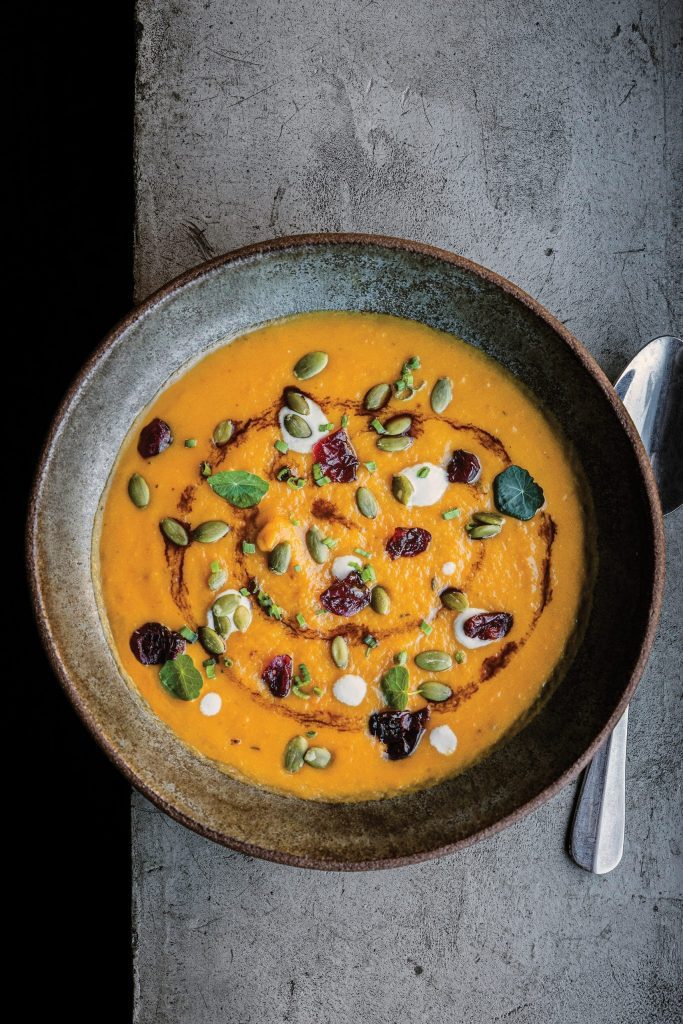
Thomas’ sweet potato soup plays on that childhood memory. Sweet potatoes are smoked to “deepen the flavor,” she says. Warm spices such as nutmeg are relics of her Ma’s Sunday supper pie. The soup is pureed and served with bourbon crema, dried cranberries, pumpkin seeds and pumpkin oil.
However, it’s not just the baking spices and sweet tubers that Thomas took away from her Ma. One weekend when she was young, a bad thunderstorm left the family without power. With the lights out, they shelled peas in the dark.
A recent power failure in the walk-in cooler at work reminded Thomas of that perseverance.
“The show must go on,” Thomas says with a smile.
Her employer rented a refrigerated truck from Cheney Brothers in Statesville. Thomas and her entire team moved everything from the walk-in to the truck while repairs were made.
“We opened at 5 o’clock,” Thomas says. “We did it.”
These three chefs are preserving traditions so that in their dining rooms, we get to live those experiences, too. Sitting at their tables, we get to be family.
Innovation certainly has its place. But with the prevalence of modern culinary trends from sous vide to gelling agents to ice chefs, it’s important not to forget to look behind us, as well.
It’s imperative we pass on the skills of our families, lest we forget how to cure, pickle, can and prune the food that walks upon and grows beneath our soil. And while it may not be something we have to do these days, it’s something we get to do because of their sweat in the dirt, their elbow grease in the kitchen.
As these chefs have shown, it’s a debt we can repay, a responsibility we can fulfill with a dedication to tradition — and, I reckon, the occasional plate of grandma’s biscuits and jam. SP

